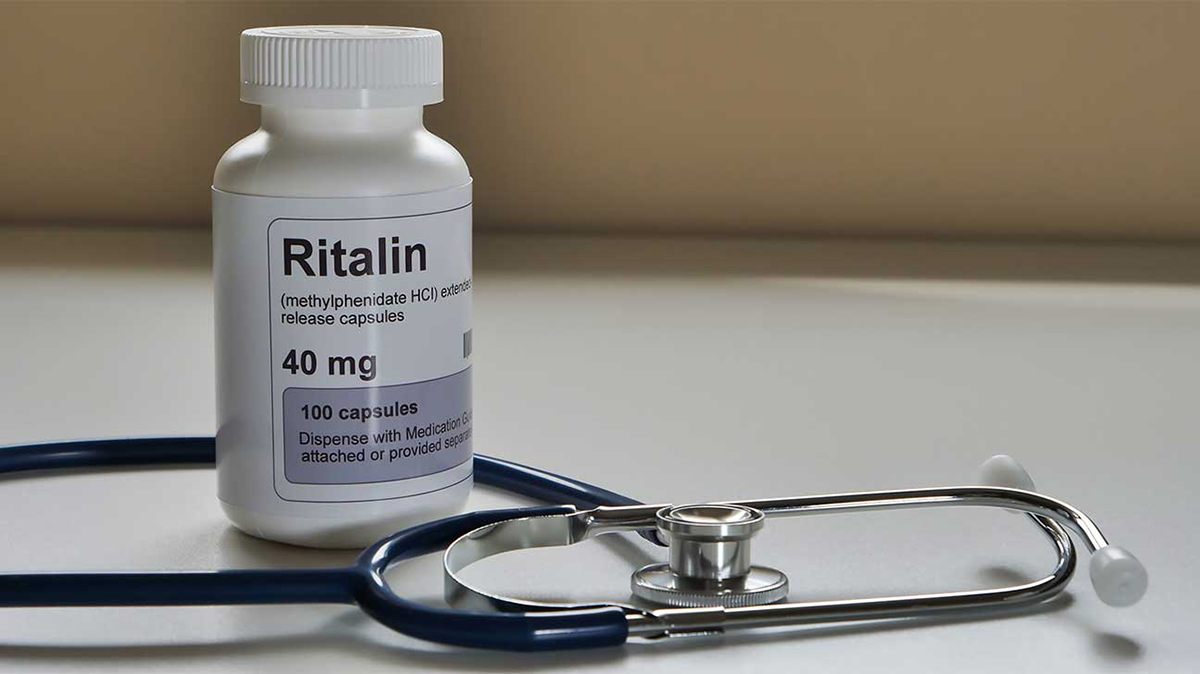

Finance
How Much Is HRT MTF Without Insurance?
Published: November 14, 2023
Find out the cost of Hormone Replacement Therapy (HRT) for Male-to-Female (MTF) individuals without insurance. Explore financial options for your transition.
(Many of the links in this article redirect to a specific reviewed product. Your purchase of these products through affiliate links helps to generate commission for LiveWell, at no extra cost. Learn more)
Table of Contents
Introduction
Welcome to the world of Hormone Replacement Therapy (HRT) for male-to-female (MTF) individuals. Transitioning is a personal journey that involves various aspects, including medical interventions.
HRT is an essential component of the transitioning process as it helps align a person’s physical appearance with their gender identity. It involves the use of hormones to promote the development of secondary sexual characteristics associated with the female gender.
While undergoing HRT can be a transformative experience for many MTF individuals, it is essential to consider the financial implications of this treatment. In this article, we’ll explore the costs associated with HRT for MTF individuals who do not have insurance coverage.
Understanding the cost of HRT without insurance is crucial for individuals who may not have access to healthcare coverage or do not qualify for insurance plans that cover transgender-related healthcare. By assessing the cost factors and exploring affordable options, we can help individuals make informed decisions about their transition journey.
So, if you’ve been wondering how much HRT for MTF individuals costs without insurance and are seeking guidance on affordable options, keep reading to find valuable insights and resources.
Understanding Hormone Replacement Therapy (HRT)
Hormone Replacement Therapy (HRT) is a medical treatment used to help transgender individuals align their physical appearance with their gender identity. For MTF individuals, HRT involves the use of estrogen and anti-androgens to promote the development of feminine characteristics.
Estrogen, the primary hormone used in MTF HRT, helps stimulate the development of breast tissue, soften the skin, and redistribute body fat to create a more feminine figure. Anti-androgens, on the other hand, block the effects of testosterone, reducing facial and body hair growth and decreasing muscle mass.
HRT for MTF individuals typically involves oral, injectable, or transdermal administration of hormones. The dosage and frequency of hormone administration may vary based on individual needs and medical professional recommendations.
It is important to note that HRT is not a one-size-fits-all treatment. The dosage and administration are tailored to each individual, taking into consideration their overall health, medical history, and hormone levels. It is crucial to consult with a qualified healthcare provider experienced in transgender healthcare to ensure safe and effective hormone therapy.
In addition to physical changes, HRT can also have significant emotional and psychological effects. Many MTF individuals experience relief from gender dysphoria and an increased sense of well-being as they align their physical appearance with their gender identity.
While HRT is an important aspect of the transitioning process for many MTF individuals, it is essential to understand the costs associated with this treatment, especially for individuals without insurance coverage.
The Cost of HRT for MTF Individuals Without Insurance
When it comes to the cost of Hormone Replacement Therapy (HRT) for MTF individuals without insurance, it’s important to consider several factors that can impact the overall expenses. Without insurance coverage, individuals may have to bear the full cost of doctor’s appointments, hormone medications, and necessary lab work.
The cost of HRT medications can vary depending on the type of hormones, dosage, and method of administration. On average, the monthly cost of estrogen and anti-androgen medications can range from $30 to $100 or more. Injectable forms of estrogen tend to be more expensive compared to oral or transdermal options.
Additionally, individuals without insurance may need to undergo regular blood tests to monitor hormone levels and ensure the safety and efficacy of the treatment. The cost of these lab tests can vary but generally range from $100 to $300 per test.
In addition to medication and lab costs, MTF individuals without insurance should also budget for doctor’s appointments and consultations. The initial consultation with a healthcare provider experienced in transgender healthcare may cost between $100 to $300 or more, depending on the location and the expertise of the provider. Follow-up appointments can range from $50 to $150 per visit.
It’s worth noting that the costs mentioned here are general estimates and can vary based on various factors such as the geographic location and the specific healthcare provider. It’s important to research and consult with healthcare professionals in your area to get a better understanding of the costs associated with HRT.
While these expenses can add up, it’s essential to prioritize your healthcare and explore affordable options to make HRT more accessible. There are resources available that can help mitigate the cost burden.
Factors Affecting the Cost of HRT for MTF Individuals
Several factors can influence the cost of Hormone Replacement Therapy (HRT) for male-to-female (MTF) individuals. Being aware of these factors can help individuals plan and budget for their treatment effectively.
- Geographic Location: The cost of healthcare services can vary significantly depending on your geographic location. Urban areas tend to have a higher cost of living, which can translate to higher healthcare expenses. It’s important to research and compare prices in different areas to find more affordable options.
- Healthcare Provider: The expertise and experience of the healthcare provider can impact the cost of HRT. Providers who specialize in transgender healthcare may charge higher fees compared to general practitioners. It’s crucial to find a knowledgeable provider who understands your specific needs.
- Medication and Dosage: The type of hormones prescribed and the dosage can influence the cost of HRT. Different medications have varying prices, and higher dosages may result in increased costs. Discussing available options with your healthcare provider can help find a balance between affordability and effectiveness.
- Method of Administration: The method of hormone administration can also affect costs. Injectable forms of estrogen are generally more expensive compared to oral medications or transdermal patches. It’s important to consider the pros and cons of each method and discuss them with your healthcare provider.
- Lab Work and Monitoring: Regular blood tests to monitor hormone levels and overall health are essential during HRT. The frequency and cost of these lab tests can vary. It’s recommended to discuss the recommended monitoring schedule and associated costs with your healthcare provider.
Budgeting for HRT can be challenging, especially without insurance coverage. However, by understanding these factors and exploring affordable options, individuals can find ways to make HRT more accessible.
Next, we will explore some affordable options for obtaining HRT without insurance.
Affordable Options for Obtaining HRT Without Insurance
Although the cost of Hormone Replacement Therapy (HRT) for male-to-female (MTF) individuals without insurance coverage can be a concern, there are affordable options available to make HRT more accessible.
1. Informed Consent Clinics: Informed consent clinics specialize in transgender healthcare and follow an informed consent model, allowing individuals to access HRT without the need for a therapist’s letter or extensive psychiatric evaluation. These clinics often have sliding scale fees based on income, making them more affordable for individuals without insurance coverage.
2. Community Health Centers: Community health centers cater to individuals with limited or no insurance coverage. They offer primary healthcare services, including HRT, on a sliding scale fee basis. These centers provide affordable healthcare options and may have resources to connect you with transgender-specific healthcare providers.
3. Online Pharmacies: Online pharmacies can offer more affordable options for purchasing hormone medications compared to traditional brick-and-mortar pharmacies. However, it’s crucial to exercise caution and ensure the legitimacy and safety of these online sources. Consult with a healthcare provider to find reputable online pharmacies.
4. Research Clinical Trials: Participating in research clinical trials may provide access to HRT medications at a reduced or no cost. Clinical trials allow individuals to contribute to the advancement of medical research while receiving necessary treatments. Research reputable clinical trial databases to explore ongoing studies in your area.
5. Transgender Support Organizations: Local transgender support organizations may offer resources and information on affordable healthcare options, including HRT. They can provide guidance, connect you with healthcare providers, and help navigate the financial aspects of transition-related care.
Remember, it’s important to consult with a qualified healthcare provider before starting HRT to ensure proper monitoring and individualized treatment. They can guide you on the most affordable and safe options available based on your specific needs.
Additionally, exploring financial assistance programs and insurance options, such as Medicaid, may also be beneficial. Researching and utilizing available resources can help alleviate the financial burden associated with HRT.
Ultimately, everyone’s financial situation is unique, and it’s essential to find the option that best suits your needs and budget. Seek out support and information from trusted healthcare professionals and community resources to navigate the process effectively.
Conclusion
Hormone Replacement Therapy (HRT) is an important aspect of the transitioning process for male-to-female (MTF) individuals. While the cost of HRT without insurance coverage can be a concern, there are various affordable options available to make it more accessible.
Understanding the factors that affect the cost of HRT, such as geographic location, healthcare provider, medication, and lab work, can help individuals plan and budget accordingly. Exploring options like informed consent clinics, community health centers, online pharmacies, and research clinical trials can provide more affordable avenues for obtaining hormone medications.
It’s crucial to consult with a qualified healthcare provider experienced in transgender healthcare to ensure safe and effective HRT. They can guide you on the most affordable options available and tailor the treatment plan to your specific needs.
Additionally, seeking support from transgender-specific organizations and researching financial assistance programs can provide valuable resources for navigating the financial aspects of HRT.
Transitioning is a deeply personal journey, and everyone’s financial situation is unique. By being informed, proactive, and resourceful, individuals can find the affordable options they need to begin and continue their HRT journey without insurance coverage.
Remember, the cost should not deter you from pursuing your transition goals. Stay connected with the transgender community, seek out support, and explore available resources to make your transition journey as smooth and fulfilling as possible.
Always prioritize your well-being and consult with healthcare professionals to ensure the safety and effectiveness of your HRT treatment. By taking these steps, you can embark on your transition journey with confidence and embrace the positive changes that HRT can bring to your life.














